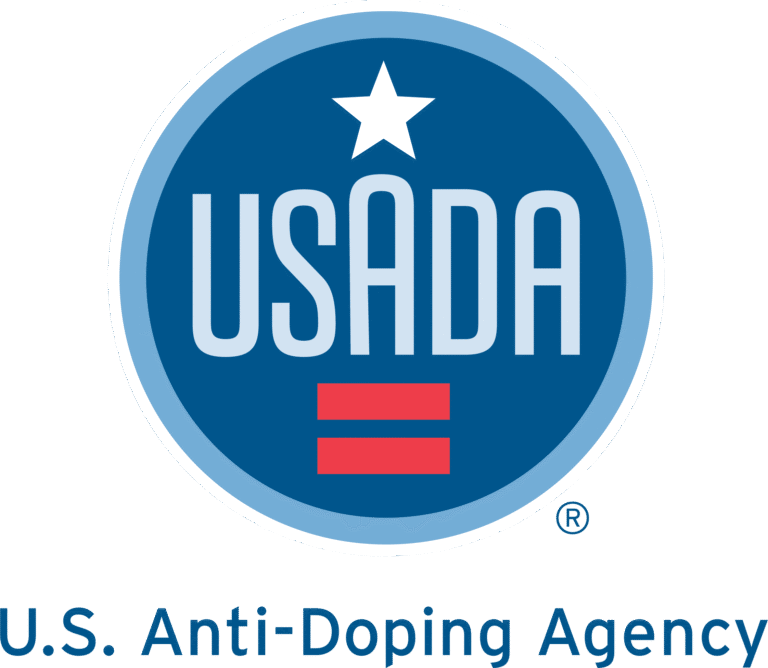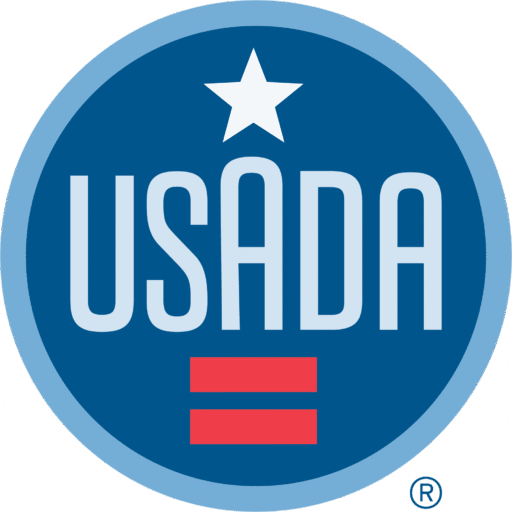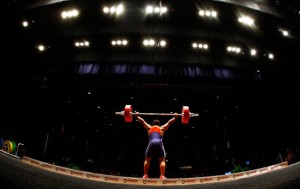
Nutrition has been critical to my journey of becoming a two-time Olympian in biathlon. When I first started training full time, I would often “bonk” mid-workout because I would deplete my energy reserves. I had to figure out how to eat enough calories to support my training load. Later on, I learned more about the nuances of nutrition – the balance between carbohydrates, proteins, and fats, how to vary the types of carbohydrates depending on the training type, and how important micronutrients are for staying healthy.
 While learning how to stay healthy, I was also surprised to learn how loosely regulated the supplement industry is. Marketing claims made by supplement companies can be misleading and the manufacturing process sometimes introduces unlabeled contaminants. The more I rely on food, the more I can control exactly what is going into my body.
While learning how to stay healthy, I was also surprised to learn how loosely regulated the supplement industry is. Marketing claims made by supplement companies can be misleading and the manufacturing process sometimes introduces unlabeled contaminants. The more I rely on food, the more I can control exactly what is going into my body.
The pandemic gave me more time at home and one benefit was that I had a chance to hone my cooking skills. I branched out and tried cooking with some different grains and legumes. I’m not a vegetarian, but I am falling in love with a lot of vegetarian recipes and incorporating more types of plants into my diet.
In fact, plant-based foods make up most, although not all, of my diet. I can get many of the nutrients I need through food without using supplements if I incorporate a wide variety of plants into my diet, such as fruits, vegetables, nuts, and grains. Some plants are high in carbohydrates, some in proteins, and some even have fats. Most have high concentrations of essential vitamins and minerals.
 Plant foods are also packed with fiber, which promotes a healthier gut biome by increasing the number of beneficial bacteria in the gut and reducing inflammation in the body. Focusing on plant-based foods promotes overall well-being in so many ways.
Plant foods are also packed with fiber, which promotes a healthier gut biome by increasing the number of beneficial bacteria in the gut and reducing inflammation in the body. Focusing on plant-based foods promotes overall well-being in so many ways.
When I fuel well and incorporate lots of plants into my diet, I have the energy to train long hours without bonking, and I feel sharp and energetic when I’m racing. My body has the resilience to fight off illness and stay healthy for longer periods of time. And I feel good and have a positive attitude.
When it comes to plant-based sources of fueling, here are my top three picks:
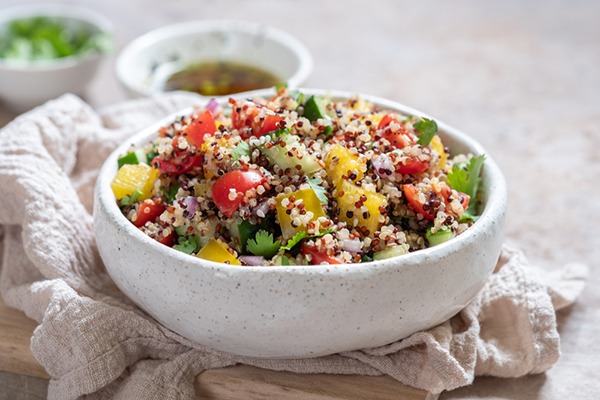 1. Quinoa
1. Quinoa
Quinoa has lots of carbohydrates, but it is also a sneaky way to add more protein to a meal. Plus, it has all nine essential amino acids and is packed with fiber, vitamins, and minerals. Since it takes only 25 minutes to cook, it is an ideal choice after a hard training day. I often use it to replace rice in stir fry, salads, and burritos.
2. Chickpeas
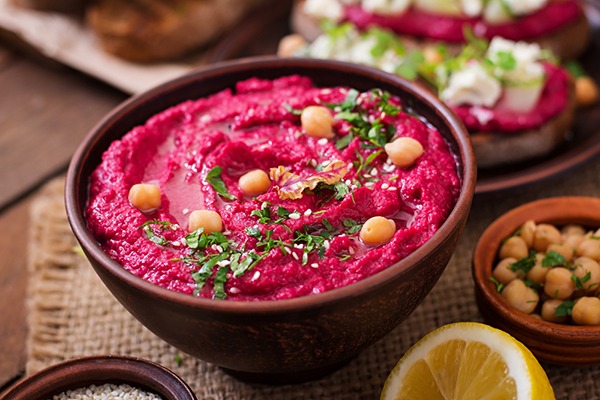 Chickpeas are another great source of protein and make great snacks. I like to roast them with a little garlic powder and salt and keep a bowl of them out on the counter for snacking. Sometimes I make chickpeas into hummus for another awesome snack, and my favorite hummus recipe comes from the cookbook “Run Fast, Eat Slow” by Olympic silver medalist Shalane Flanagan and nutritionist Elyse Kopecky. It’s really fun because it is bright pink! The beets add in important micronutrients like folate and manganese, and it tastes great.
Chickpeas are another great source of protein and make great snacks. I like to roast them with a little garlic powder and salt and keep a bowl of them out on the counter for snacking. Sometimes I make chickpeas into hummus for another awesome snack, and my favorite hummus recipe comes from the cookbook “Run Fast, Eat Slow” by Olympic silver medalist Shalane Flanagan and nutritionist Elyse Kopecky. It’s really fun because it is bright pink! The beets add in important micronutrients like folate and manganese, and it tastes great.
3. Nuts
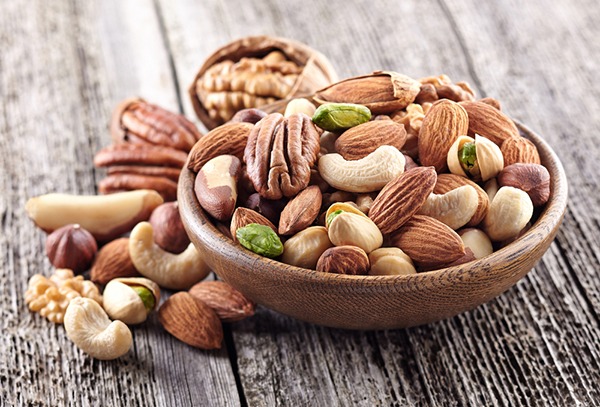 Nuts are one of my go-to snacks to quickly satisfy a hunger craving. Pecans and cashews are some of my favorites, especially when roasted for a couple minutes with spices. One small handful provides a boost of protein and fats. Fats had a bad reputation for a long time, but the truth is, our bodies need fats for many essential functions. Nuts have a lot of the healthier fats, including monounsaturated and polyunsaturated fats.
Nuts are one of my go-to snacks to quickly satisfy a hunger craving. Pecans and cashews are some of my favorites, especially when roasted for a couple minutes with spices. One small handful provides a boost of protein and fats. Fats had a bad reputation for a long time, but the truth is, our bodies need fats for many essential functions. Nuts have a lot of the healthier fats, including monounsaturated and polyunsaturated fats.
About Susan Dunklee
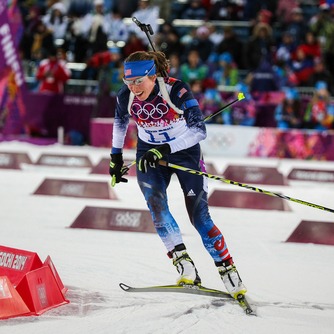 After joining US Biathlon’s development program in 2008 and completing her first World Cup season in 2012, Susan Dunklee went on to become a two-time Olympian by earning a place at the 2014 Sochi Winter Games and at the 2018 PyeongChang Winter Games. Amid that success, she also made waves in 2017 by becoming the first American woman to win a world championship medal in an individual event, taking home a silver in the mass start. In 2020, she also won silver in the sprint and earned recognition as the first U.S. double medalist at the IBU World Championships.
After joining US Biathlon’s development program in 2008 and completing her first World Cup season in 2012, Susan Dunklee went on to become a two-time Olympian by earning a place at the 2014 Sochi Winter Games and at the 2018 PyeongChang Winter Games. Amid that success, she also made waves in 2017 by becoming the first American woman to win a world championship medal in an individual event, taking home a silver in the mass start. In 2020, she also won silver in the sprint and earned recognition as the first U.S. double medalist at the IBU World Championships.
What is food-first nutrition?
Every athlete wants to reach their peak performance, which often means pushing harder and longer in training and in competition. In the quest to reach their maximum potential, many athletes know that good nutrition is critical, but they may also look to the latest supplements and trendy diet regimens to give them that extra boost.
Some athletes, on the other hand, have found that a food-first approach is all they need to achieve peak performance. While some athletes may need to supplement their dietary intake because of a medical condition, many athletes can properly fuel their bodies and meet all their bodies’ needs with the right food.
In the Food-First Nutrition series, Olympians, Paralympians, and elite athletes share how they maintain the strength and energy they need to compete at the highest levels of sport through a food first approach. For more information on the best foods for athletes, check out the TrueSport Nutrition Guide.
